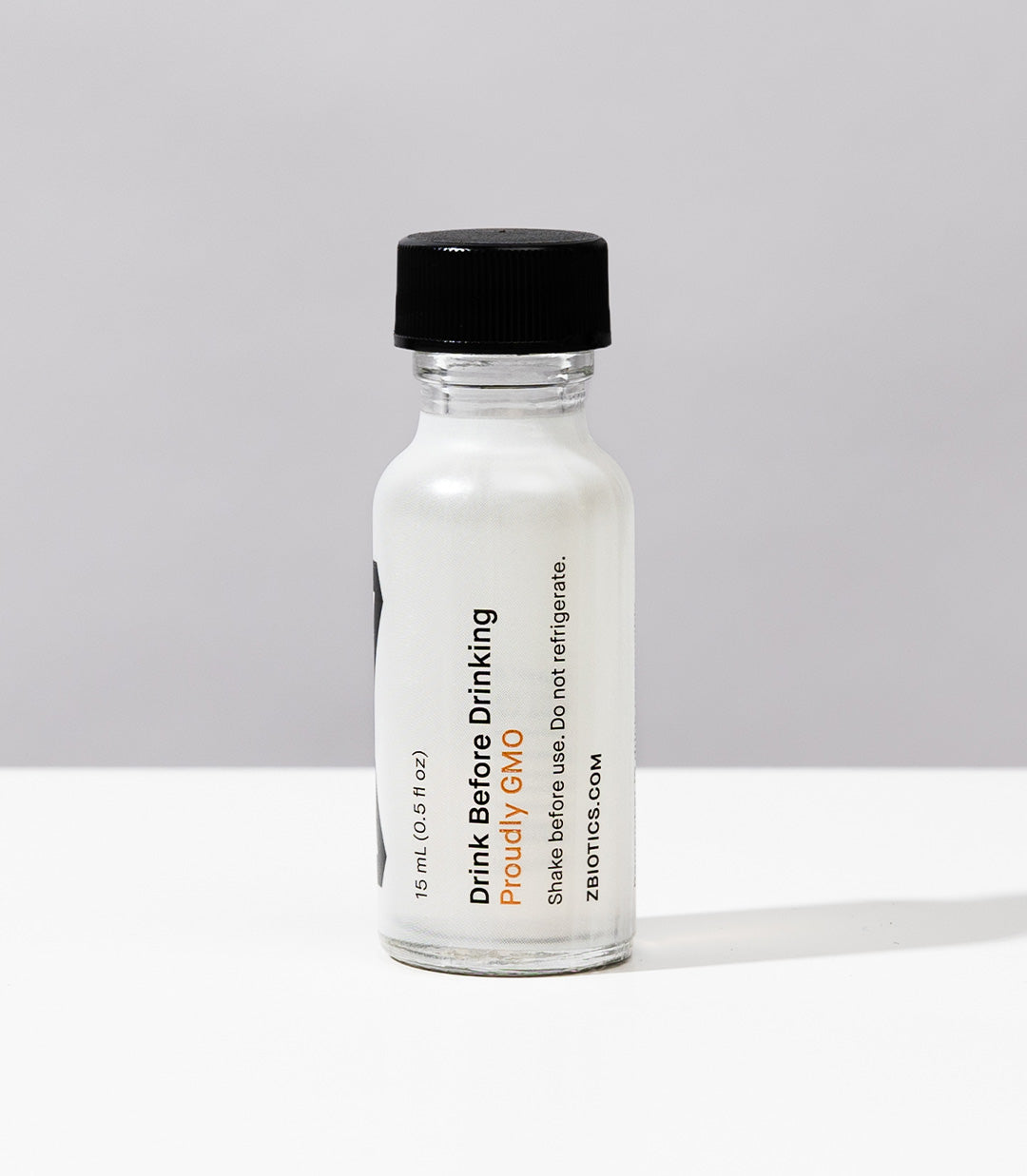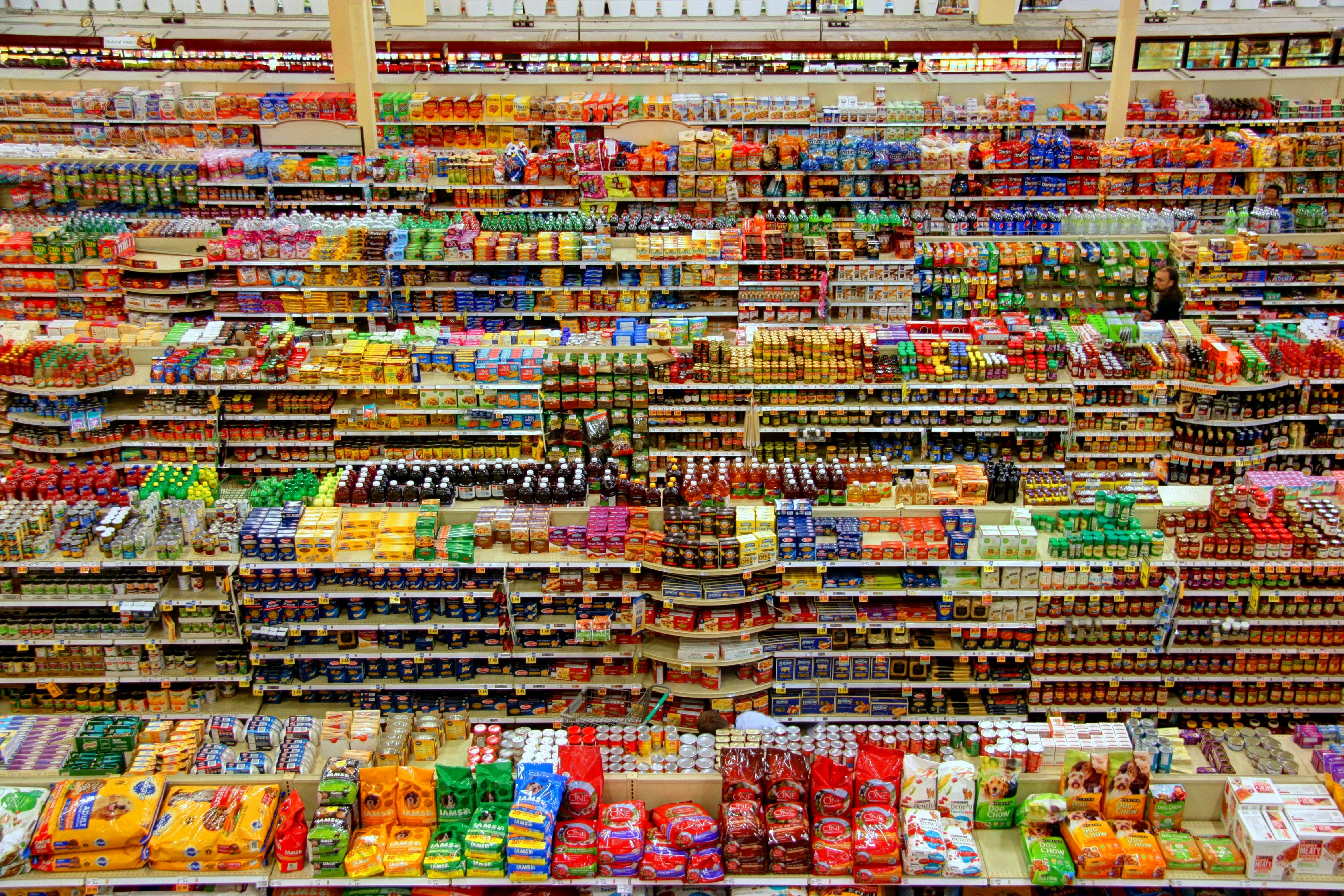
Beyond the Buzzwords: Unpacking What Food Labels Really Mean
In today’s grocery aisles, food labels have become as complex as the ingredients they aim to disclose. From the ubiquitous “non-GMO” and “organic” to the seemingly straightforward “free-range” and “all-natural,” the plethora of labels can leave even the most informed shoppers feeling puzzled.
Why is it that food labels, designed to inform, often end up confusing us instead? And importantly, why does our team at ZBiotics choose to put “Proudly GMO” on our Pre-Alcohol bottles, especially in an era where there is a rush towards placing “non-GMO” on everything?
The confusion behind food labels arises from a lack of standardization
Food labels are intended to provide us with essential information about the nutritional content and ingredients in our food. But they’re often more confusing than helpful.
The confusion arises from two places: the lack of standardization within the food industry and the practice of companies interpreting terms as broadly as possible. Take "natural" for instance. The term remains loosely defined by regulatory agencies, leading to overuse by corporate marketing departments and misinterpretation by consumers. Similarly, labels like "cage-free" or "free-range" imply a certain level of animal welfare, but due to varying legal standards for these terms, that implied standard may not match with reality.
Consider this: a staggering percentage of consumers misinterpret "free-range" to mean that animals spend the majority of their time in bucolic, open pastures. However, the reality is often far less idyllic, with the legal requirements for such labels requiring minimal access to the outdoors. As an example, the USDA allows producers to use the term 'free-range' or 'free-roaming' as long as the animals have access to the outdoors, even if it's just for a short period of time each day (citation).
To cut through the clutter, we need to decipher the jargon
To navigate the maze of food labeling, it's crucial to understand what certain key terms mean and the standards behind them.
Here are just a few examples. Notice how broad the definition for each term can be, as well as the variability in how they are or not regulated. Altogether, it creates a lot of gray area within each one.
Organic
Non-GMO
Free-range
All-natural
Pay special attention to the order in which ingredients are listed
This can be especially revealing of the nutritional value of a food item. By law, ingredients are listed descending by weight (citation). Therefore, a product that lists “sugar” as its first ingredient but that labels itself as a health food, might be trying to mislead shoppers.

Be mindful of companies co-opting terms to create misleading connotations
The food industry often uses certain terms to make consumers think a product is healthier or more sustainable, even though it is not. Take the term "gluten-free.” While this term is important as a disclaimer for folks with celiac disease, rampant use of the term – even when it is irrelevant – has created the impression that gluten is unhealthy. Products labeled "gluten-free" are therefore assumed to be healthier than similar products that contain gluten, even though consuming gluten is not inherently unhealthy to folks without celiac disease (citation).
Another example is how companies use the “Non-GMO” label to imply that products are healthier, even for products where no GMO alternative exists. Thousands of companies do this, with the non-GMO butterfly label on things like wheat flour, strawberries, and garbanzo beans, even though GMO wheat, strawberries, and garbanzo beans don’t exist. But two examples that especially demonstrate the point are non-GMO water and non-GMO salt.
To be clear: neither water nor salt is even capable of being genetically modified. They are not living organisms and thus have no genetic material or genes to modify. But companies like using the label to imply that these products are better for consumers.
Misleading labels have given GMOs a bad reputation, even when they are proven to be safe
The reason companies use “non-GMO” labels – even when they are not contextually relevant – is because they know that to many people, “GMO” carries a negative connotation around health. That connotation benefits those companies, who play up that fear to sell more products.
But as common as it is, the idea that GMOs carry some inherent health risk just isn’t true.
That idea has been debunked time and again – not just by scientific organizations like the World Health Organization and the United States Food and Drug Administration, but also by the global scientific community. There’s been plenty of ink spilled making that point, and we won’t do it justice here. But we will share two ideas we often find ourselves coming back to when it comes to GMO safety:
Idea #1:
Idea #2:
The upshot of these comparisons is the same: any new product – genetically engineered or not – must be individually evaluated for safety. But being genetically engineered doesn’t make something inherently unsafe.
Just like any tool, genetic engineering can be wielded carefully or recklessly. That is why we strongly advocate for the extensive scientific evaluation of the safety and labeling of all GMO products as a basic tenet of responsible use of genetic engineering.
We put “Proudly GMO” on our bottles because we value transparency and safety
Those following ZBiotics will notice that we do things a bit differently here, as we label every one of our bottles “Proudly GMO.” That’s because we care deeply about being transparent with customers about our use of genetic engineering. In addition, we believe that genetic engineering can do a lot of good for our planet, and we’re proud of our use of the technology to make better products.
That commitment goes beyond talking up our technology; it's about fostering a culture of informed decision-making among consumers. By advocating for clearer, more honest labeling practices and providing great products responsibly made with genetic engineering, we aim to empower individuals to make choices that align with their values and well-being. We’re proud that what we’ve built and the mission we are working towards are enhancing the daily lives of our customers.
